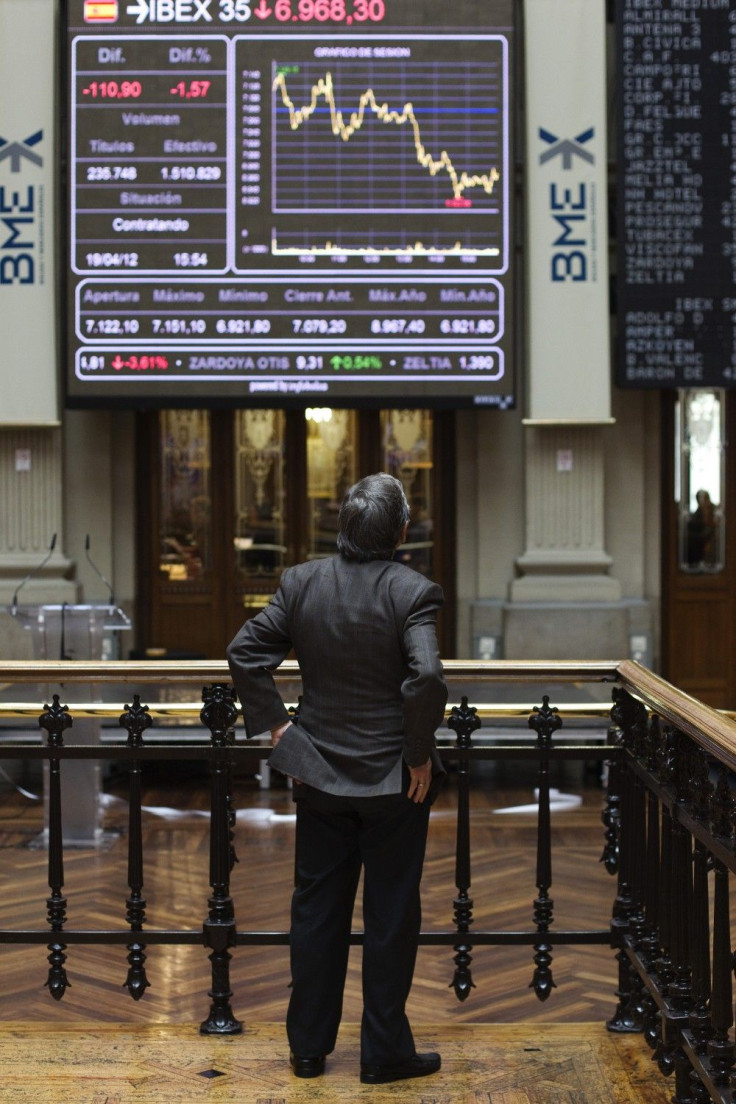Carnage in Europe Stock Markets As Bad News Stir Sharp Correction

A steady drip of bad news swelled into a river of losses for European equities Monday, as stock markets across the continent -- some already battered in previous weeks -- experienced significant declines.
The losses appeared to be disproportionate to the negative headlines, which included a report that manufacturing growth was slowing in Germany and France, and another reading that confirmed the contraction being seen in Chinese business activity. The sharp decline in the face of only tepidly negative news suggests at least part of the sell-off was the result of a technical correction in an overvalued market.
The blue-chip Euro Stoxx 50 Index of benchmark euro zone companies fell 2.87 percent for the day, compounding on several days of losses that have seen the stock measure fall 13.9 percent since March 18.
Country specific indexes fared just as poorly. In France, where the first-round victory of a Socialist candidate for the presidency ignited fears the country would roll back commitments to the preservation of the euro zone status quo, the benchmark CAC 40 index fell 2.83 percent, erasing all of the gains seen earlier in 2012. The Amsterdam Stock Exchange's main index fell 2.56 percent on political developments: that country's government announced a budgetary deadlock that is likely to lead to new elections.
Spain's IBEX 35 Index fell 2.76 percent, an amount which, following weeks of heavy sell-offs, placed that stock benchmark just points away from 2009 lows. Surprisingly, one of the hardest-hit markets was in Frankfurt, where the DAX index collapsed 3.36 percent.
Market watchers suggested the steep sell-off was likely a combination of factors, including the fact investors might be putting heavy weight on unpredictable political developments. The situation in the Netherlands in particular appeared to be a loaded wildcard, as the current fiscal impasse threatens Holland's sterling AAA credit rating and is difficult to hedge against.
The Dutch government's announcement might have left the impression that the core euro zone countries are not willing to address the problem of high budget deficits, Alexander Kraemer, a cross-asset strategist at Commerzbank in Frankfurt, told Bloomberg.
But there was also somewhat of a technical component to the equity fire sale, as markets seem to be experiencing a correction following strong early gains during the first 10 weeks of the year.
Dennis Gartman, publisher of a well-respected investment newsletter, was quoted in the Wall Street Journal as stating the results of Monday's trending session show the upward trend in European stocks seen earlier this year was definitely broken
Trend lines of this consequence are not broken easily and when they are broken only the foolhardy do not at least pay them some modest respect, Gartman said. We pay breaks such as these a great deal of respect.
Dragged down by the developments across the Atlantic, U.S. stock markets also dropped, though not as sharply. The benchmark S&P 500 Index of U.S. equities was recently trading at 1,363.83, down 1.06 percent.
© Copyright Thomson Reuters 2024. All rights reserved.




















